Archive
2020
KubaParis
Umsteigemöglichkeit
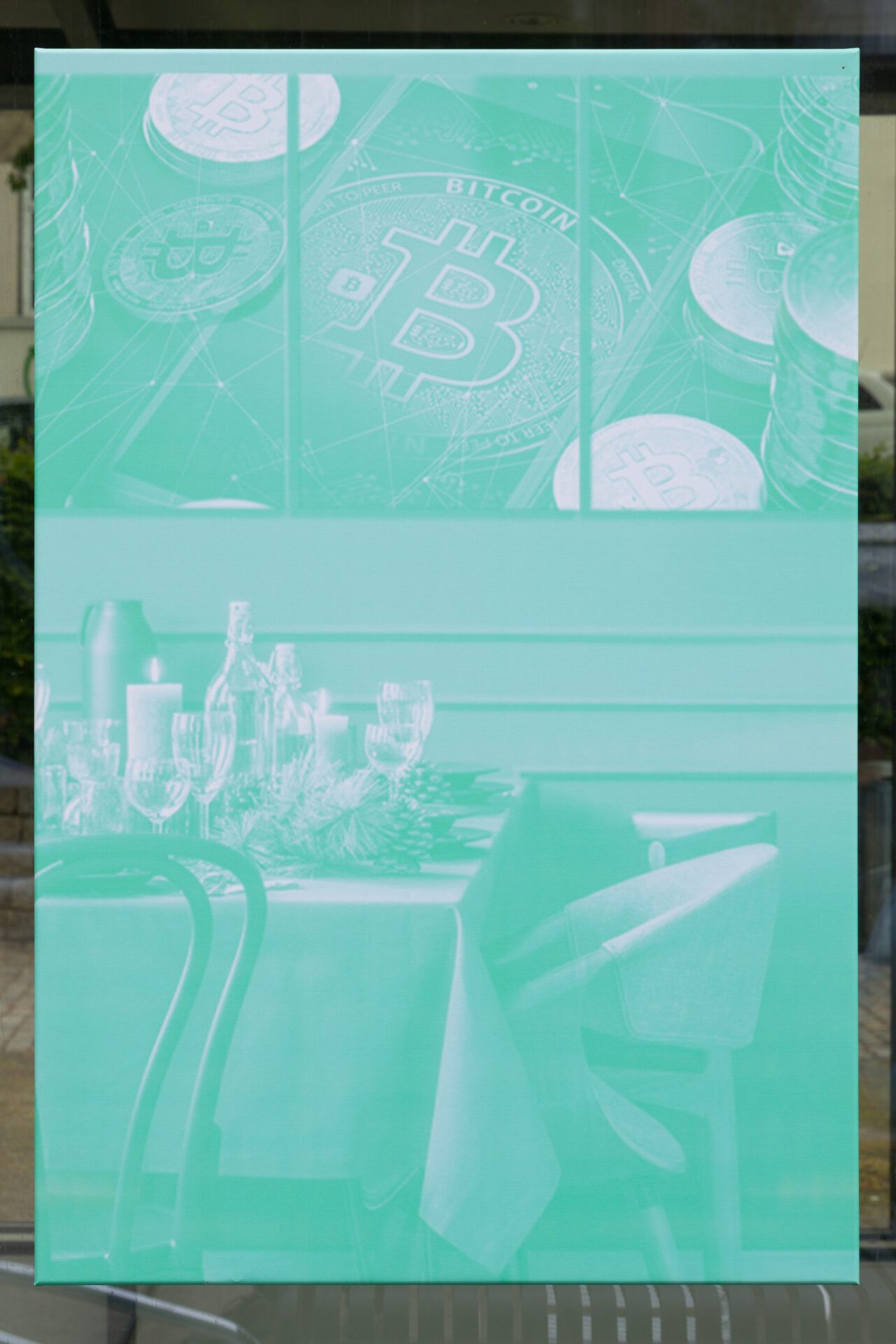
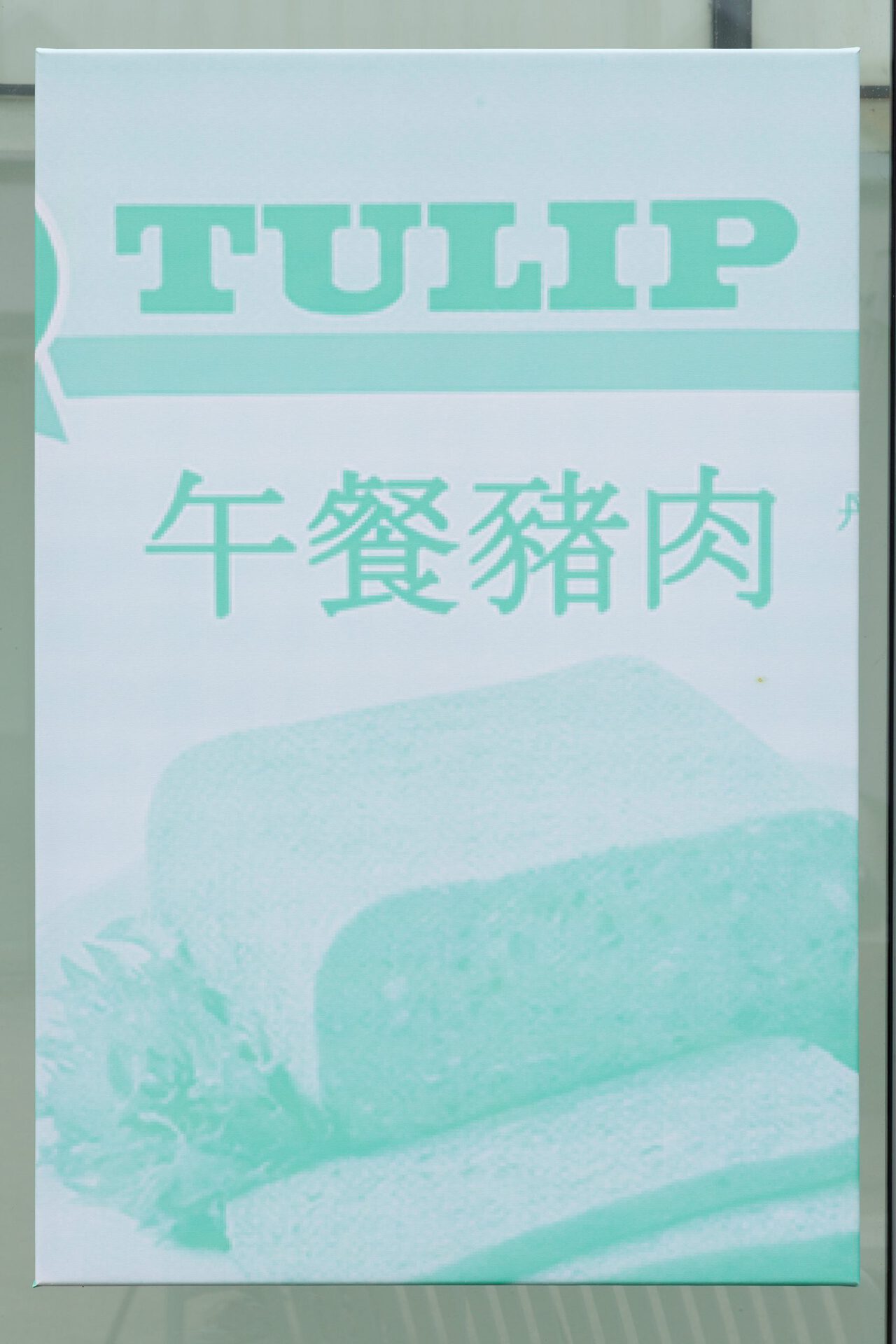
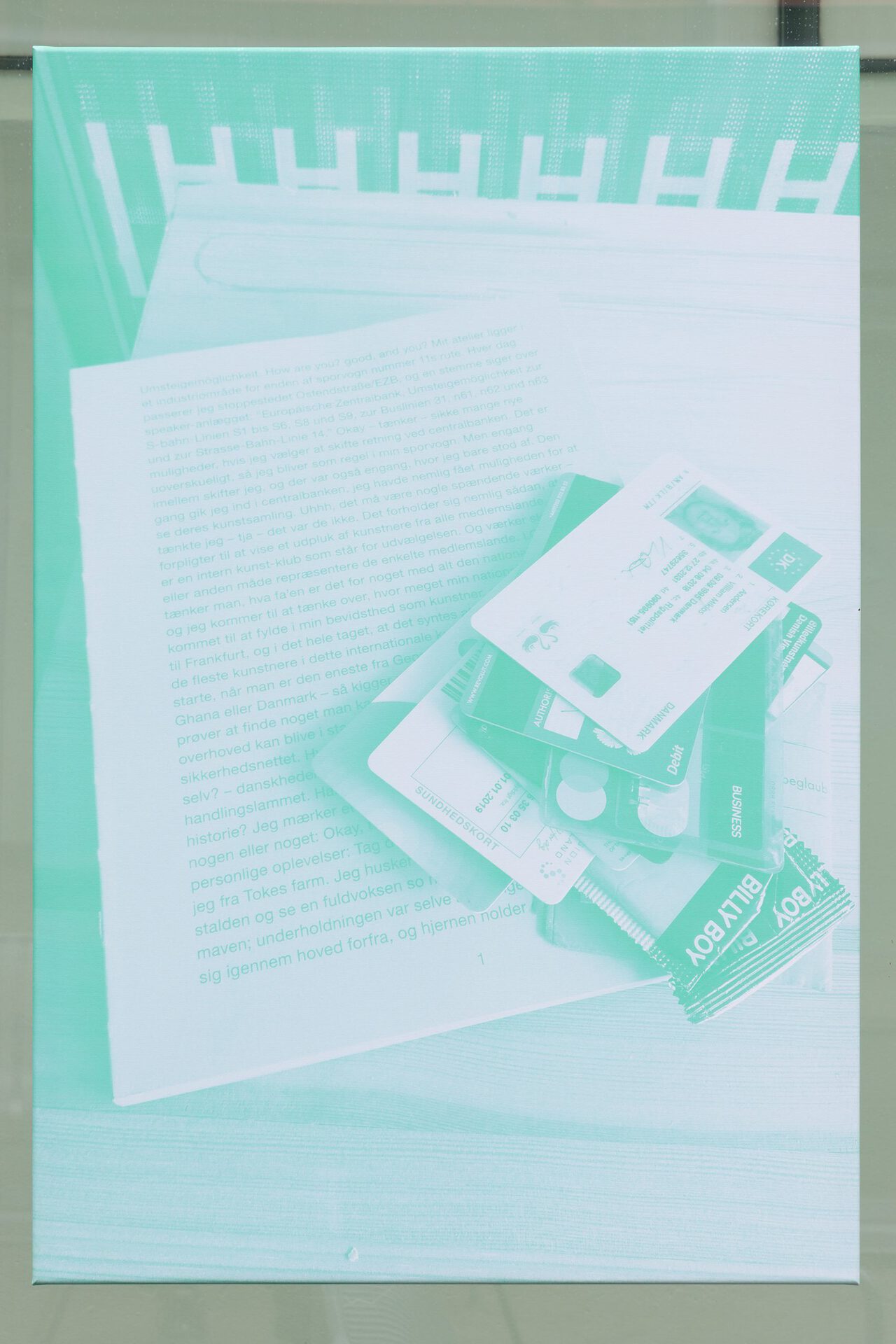
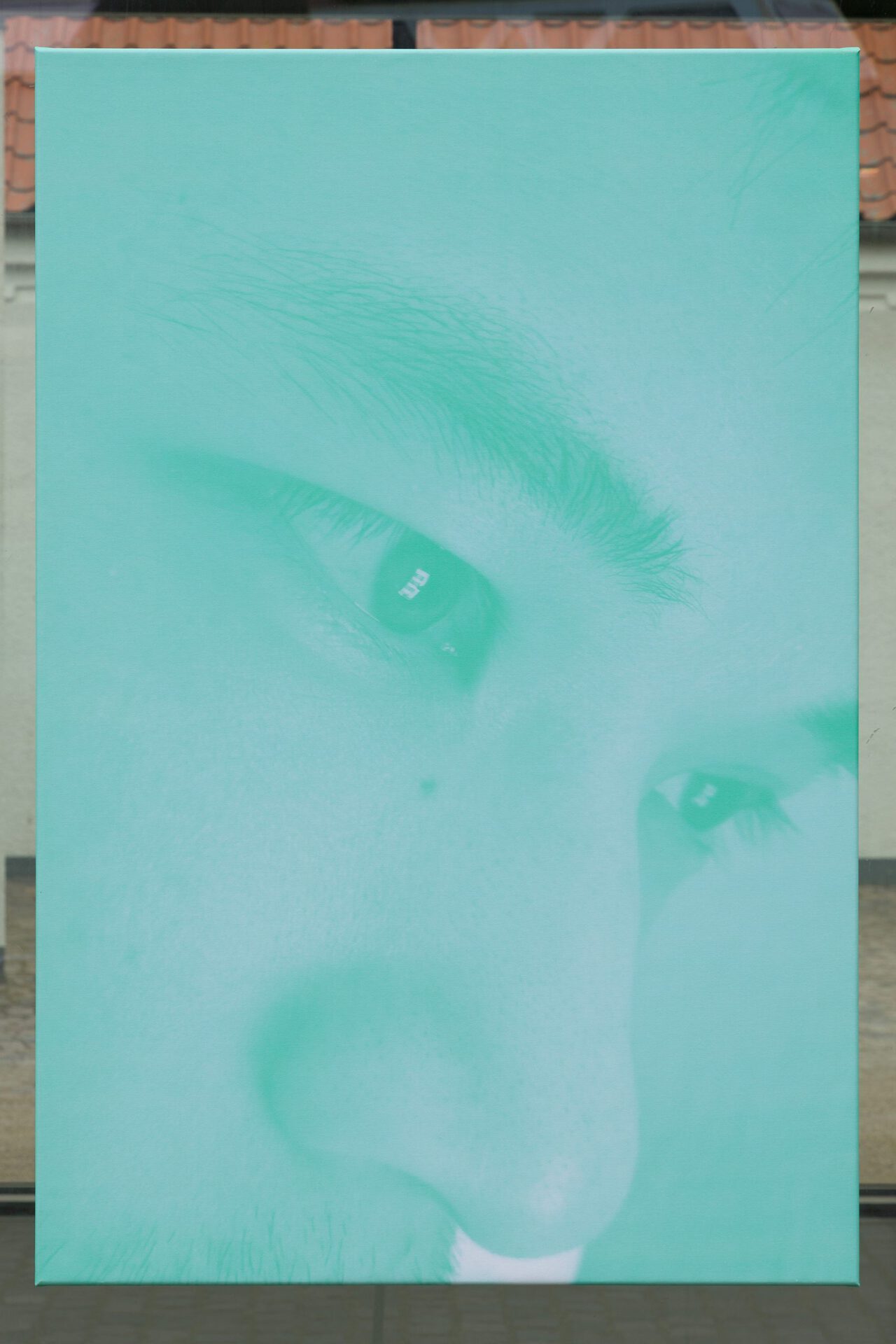
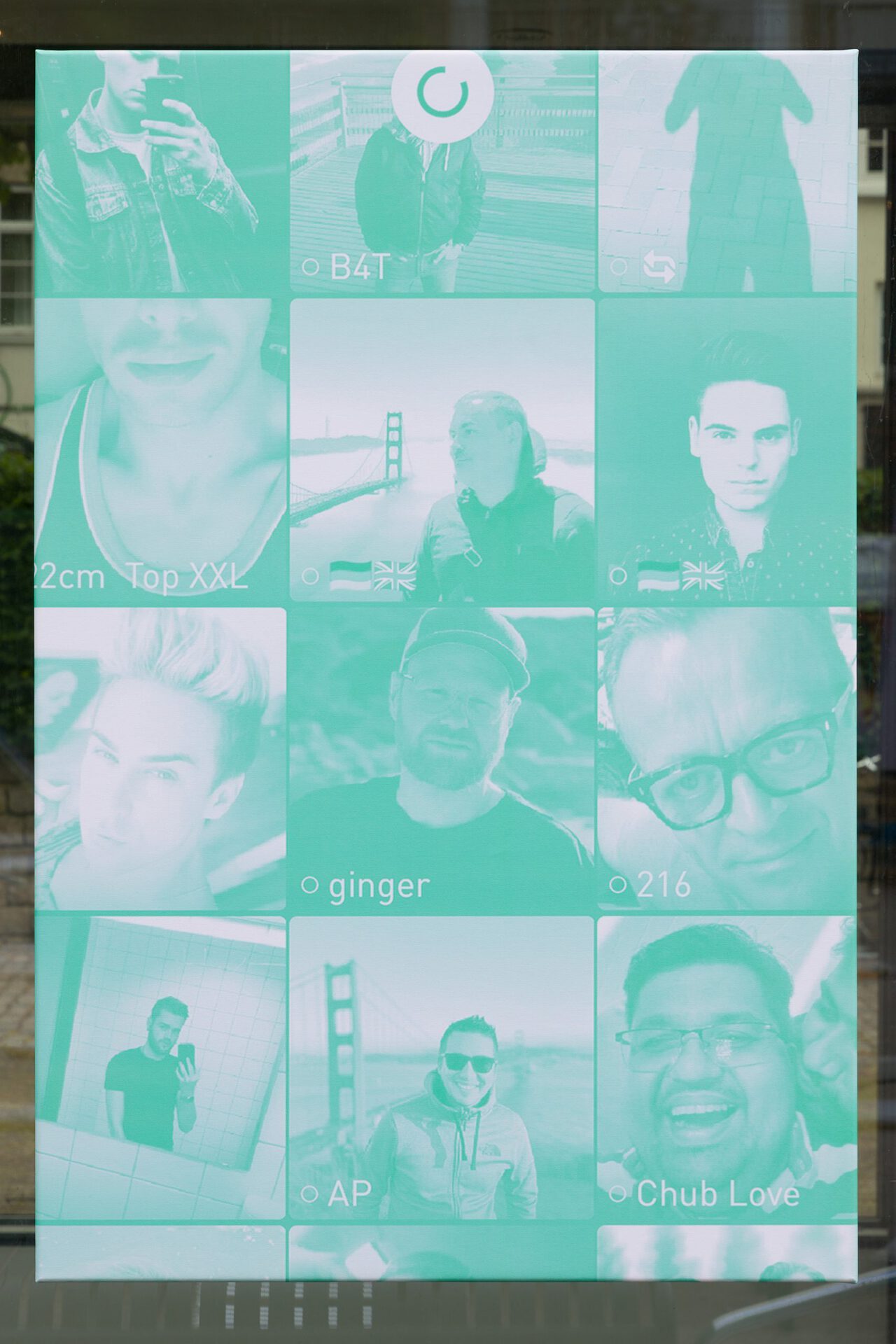
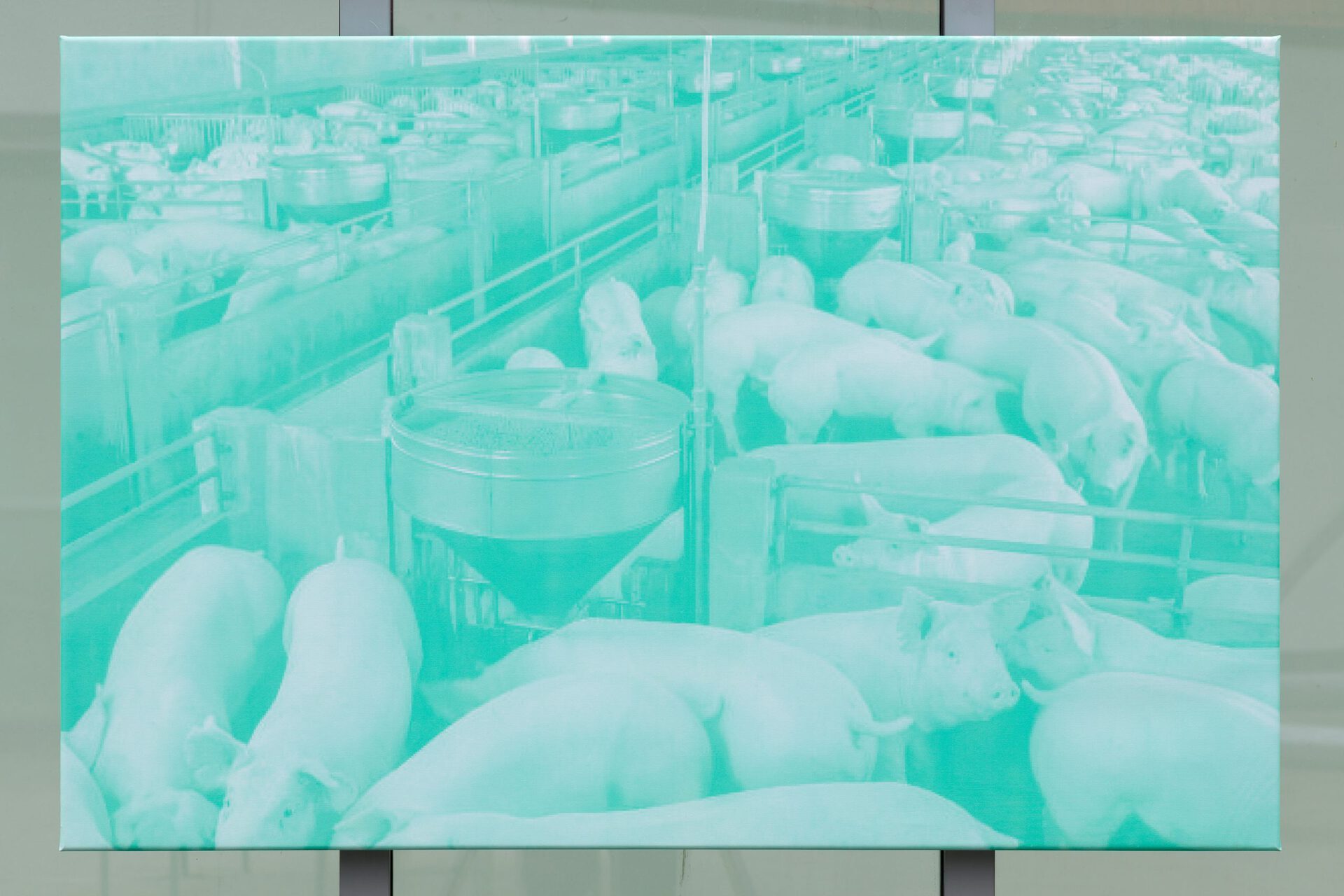
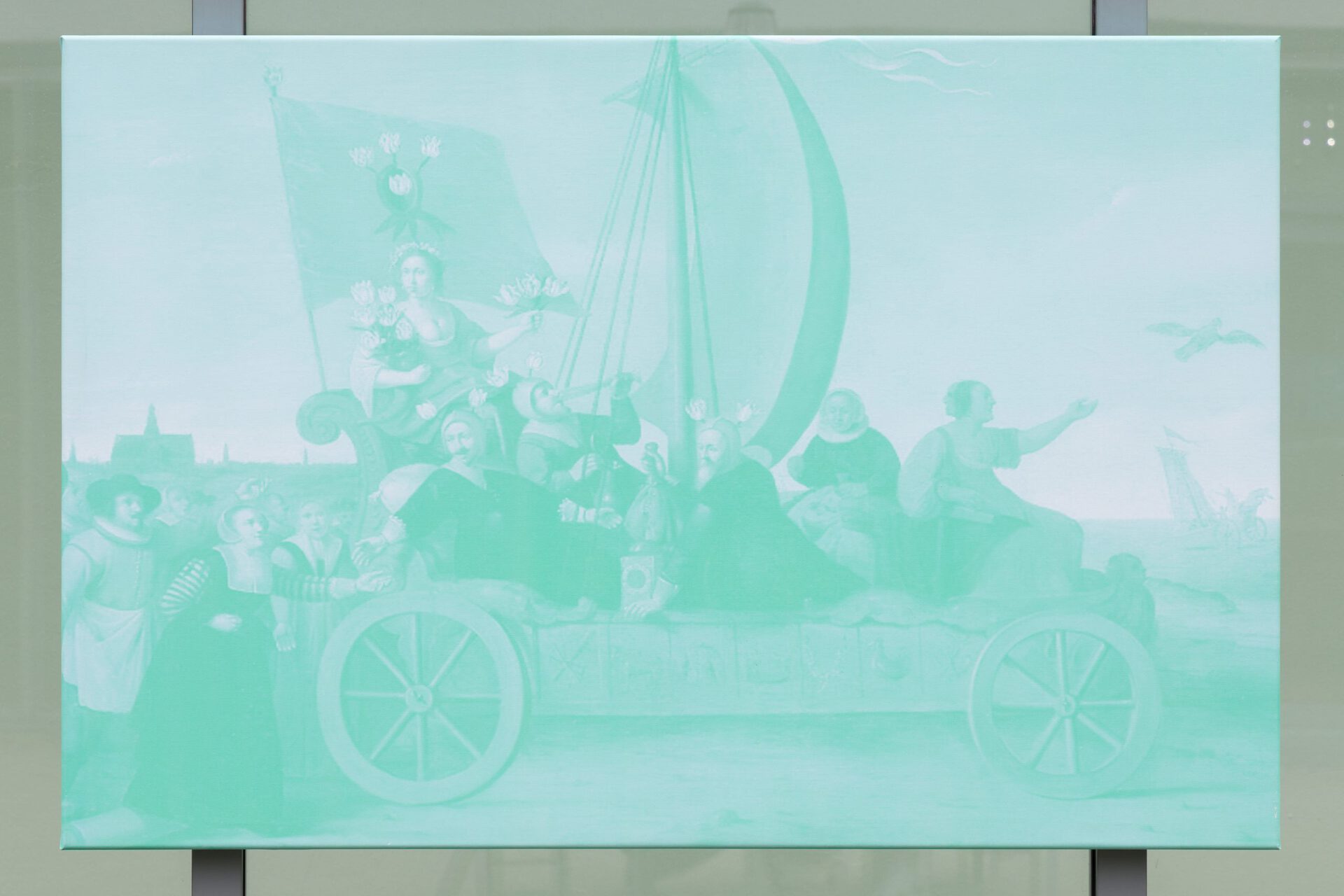
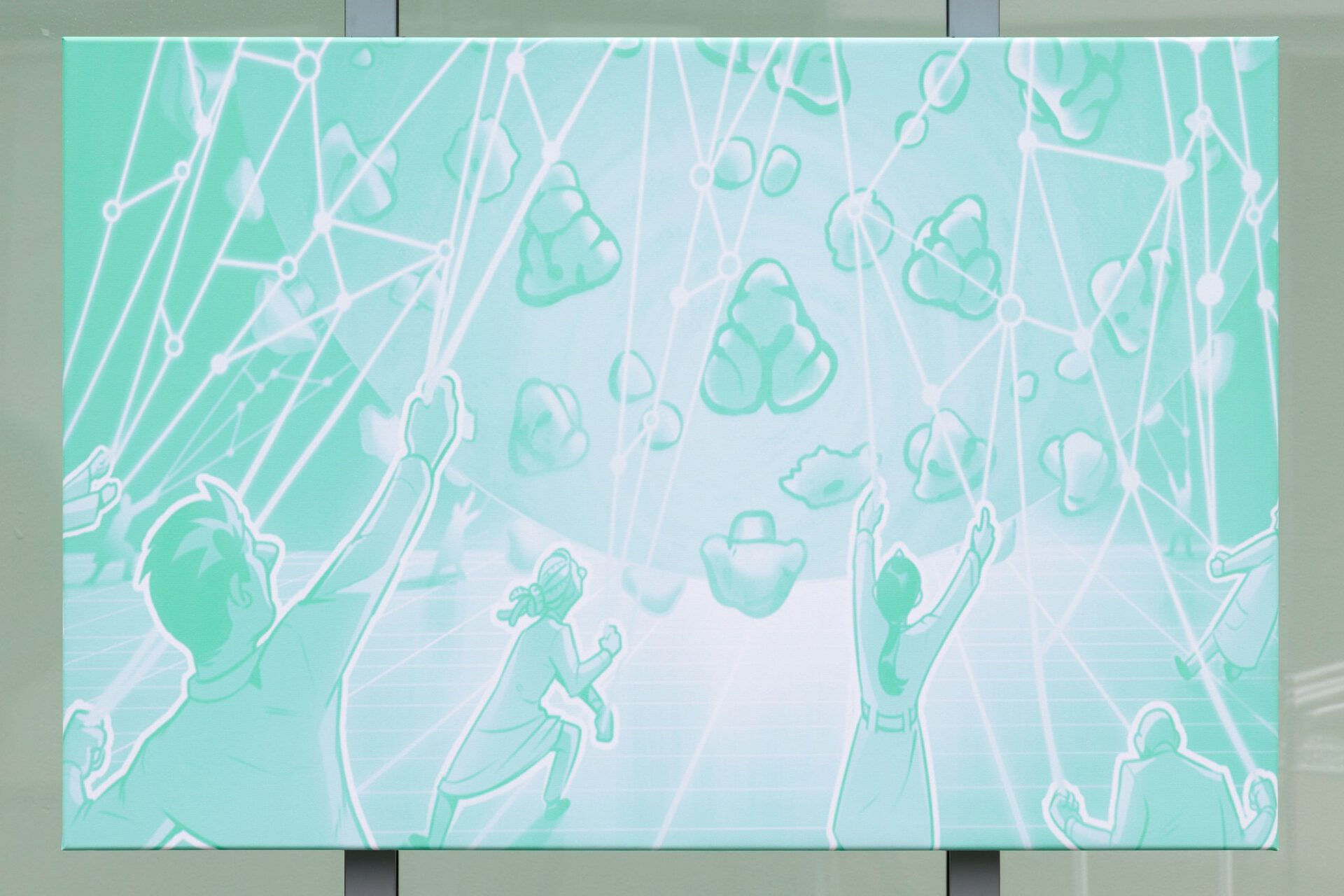
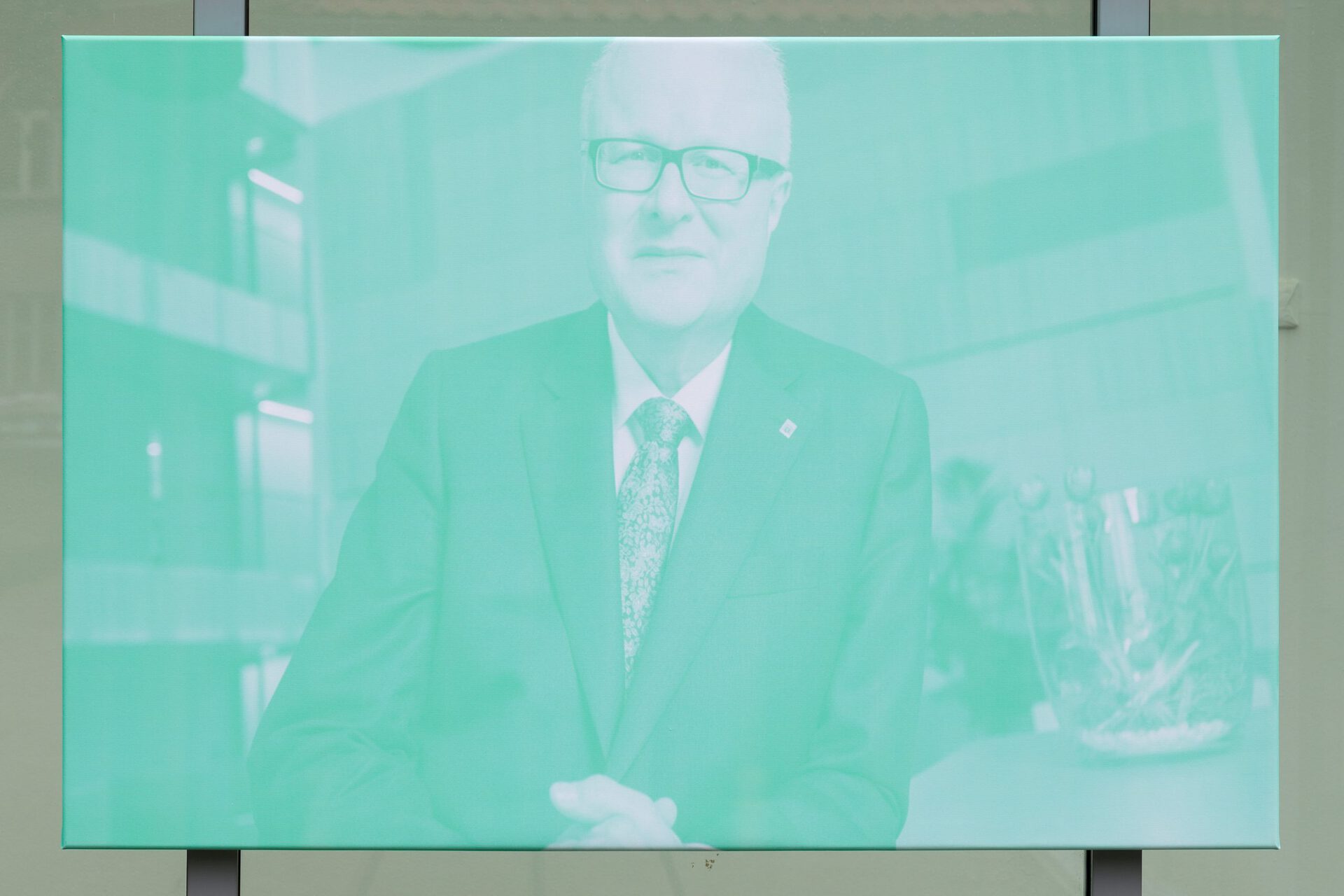
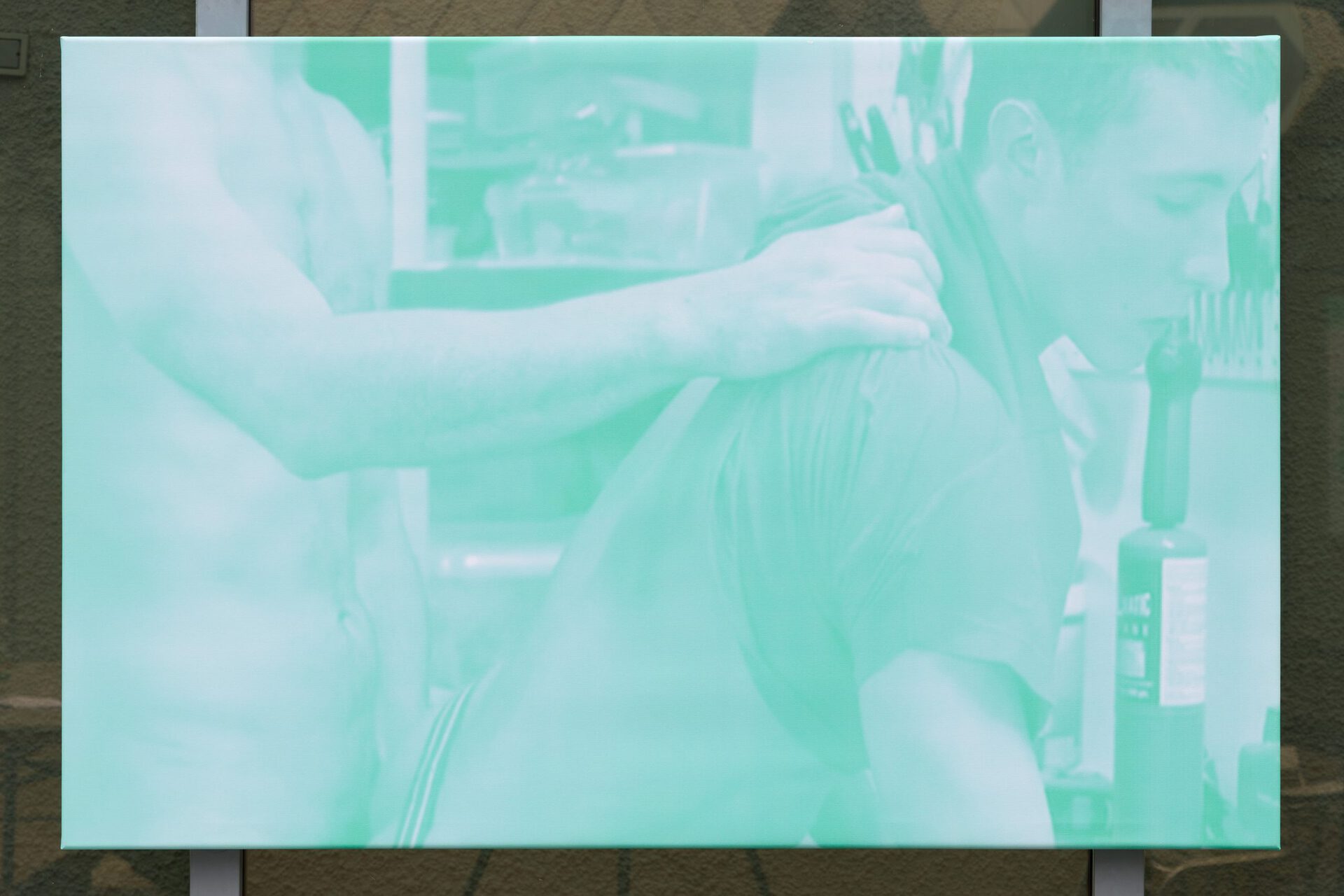
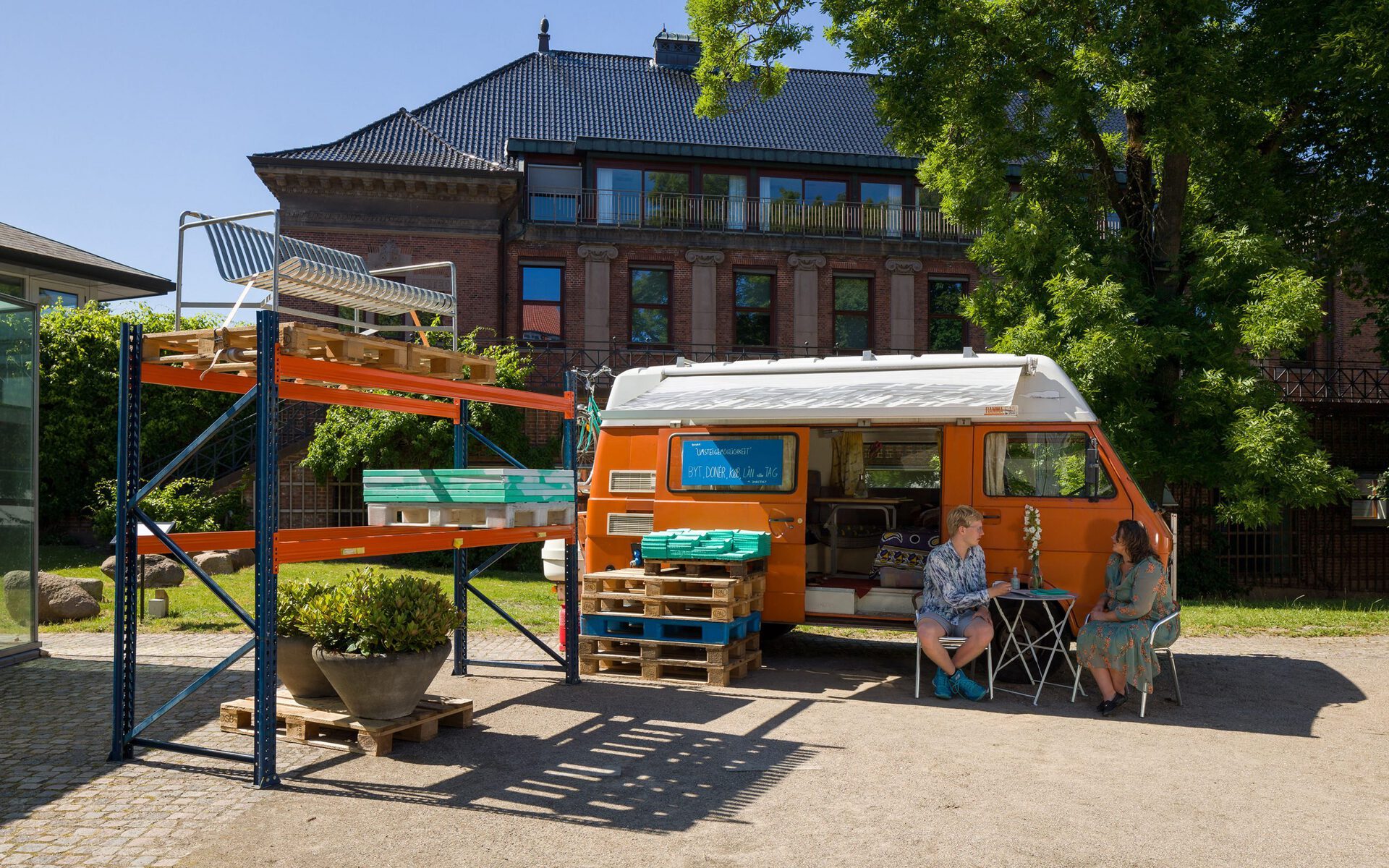
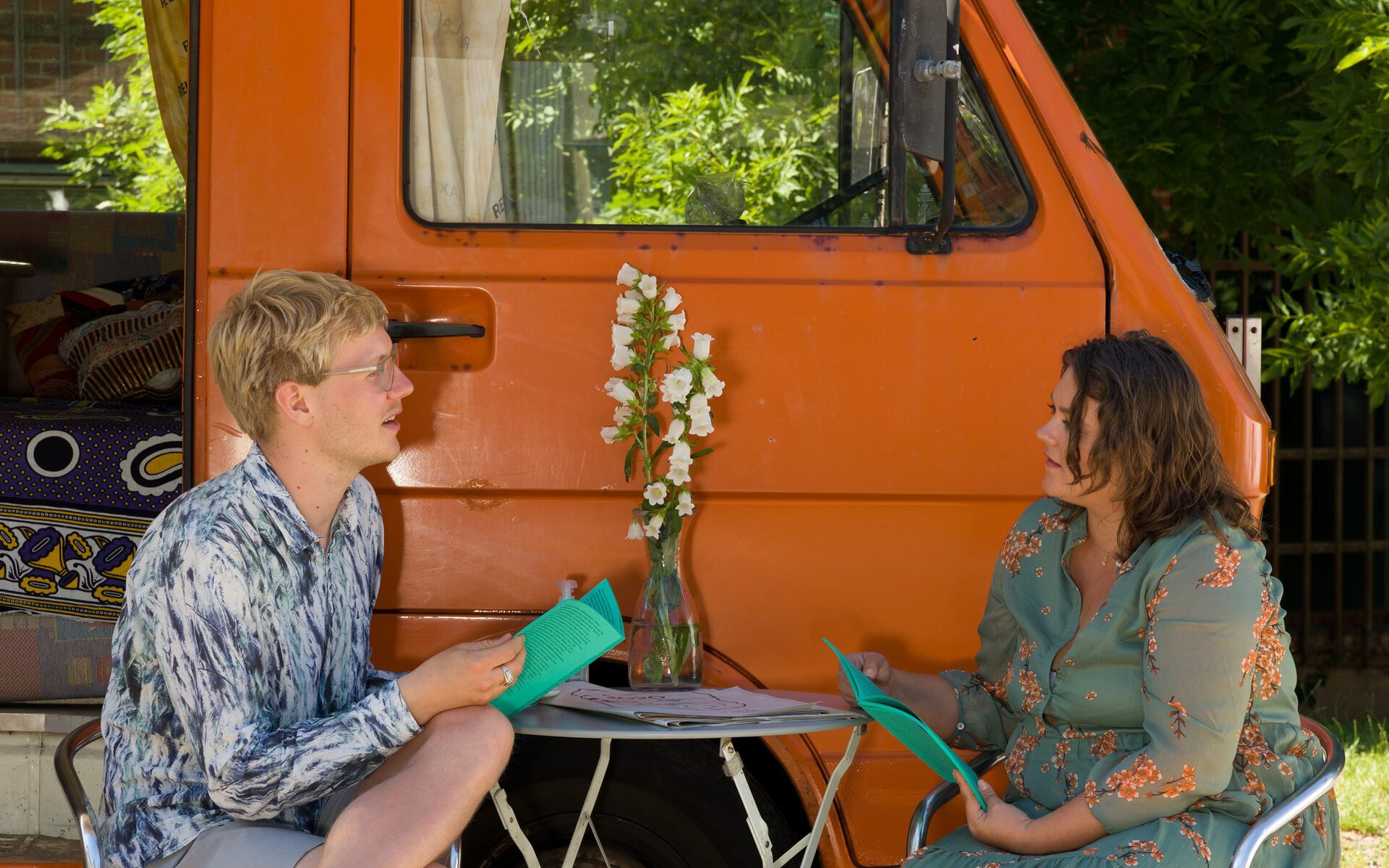
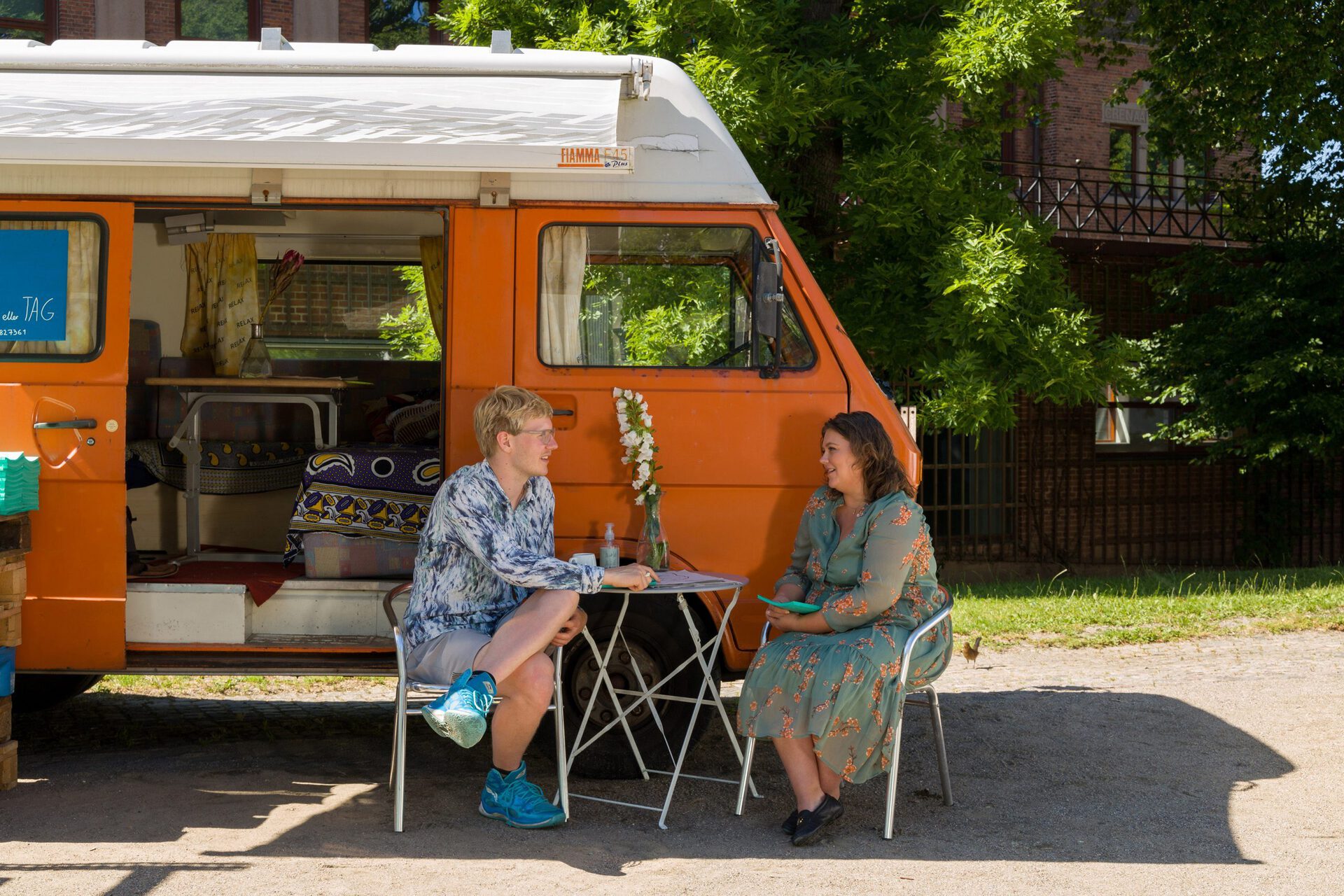
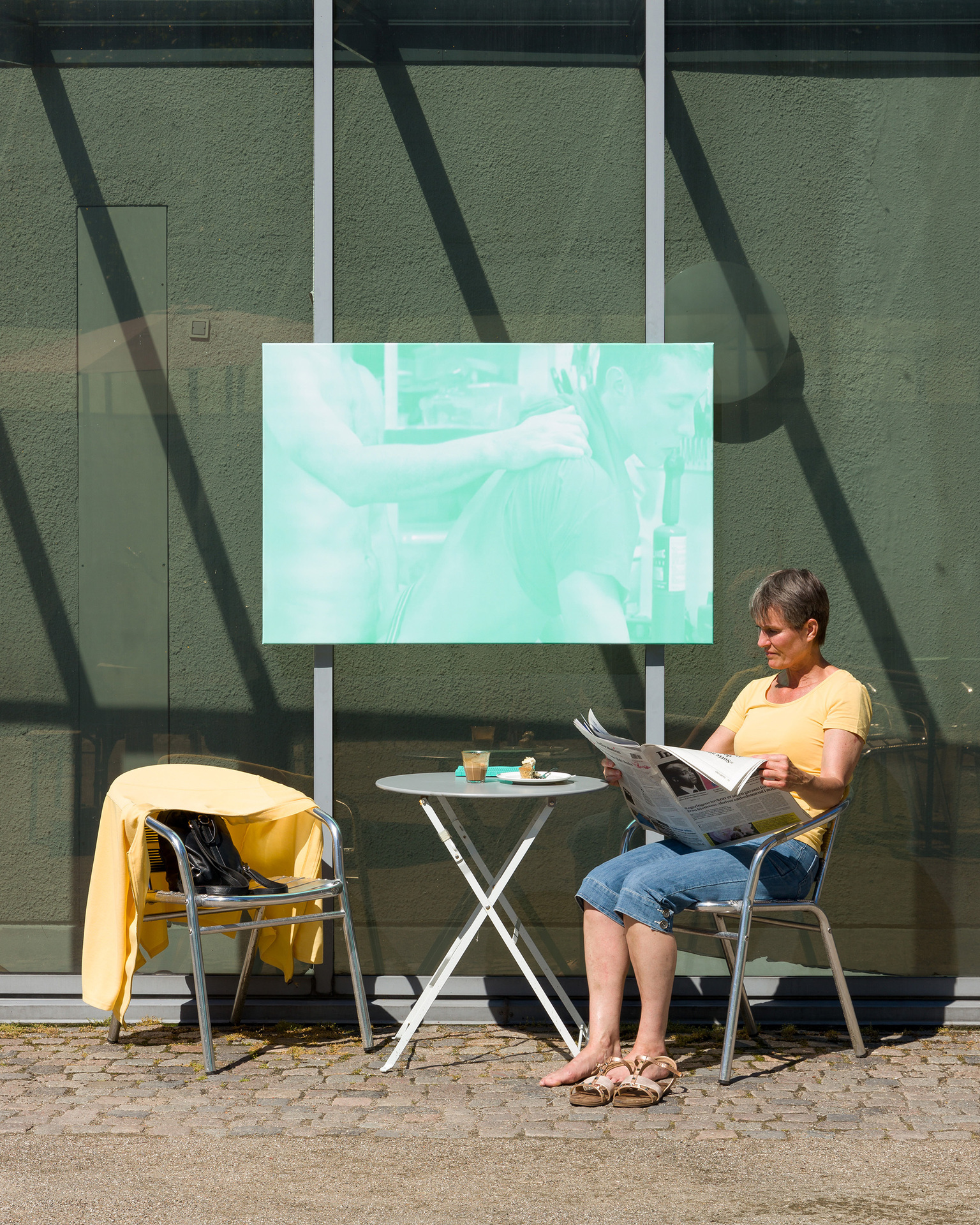
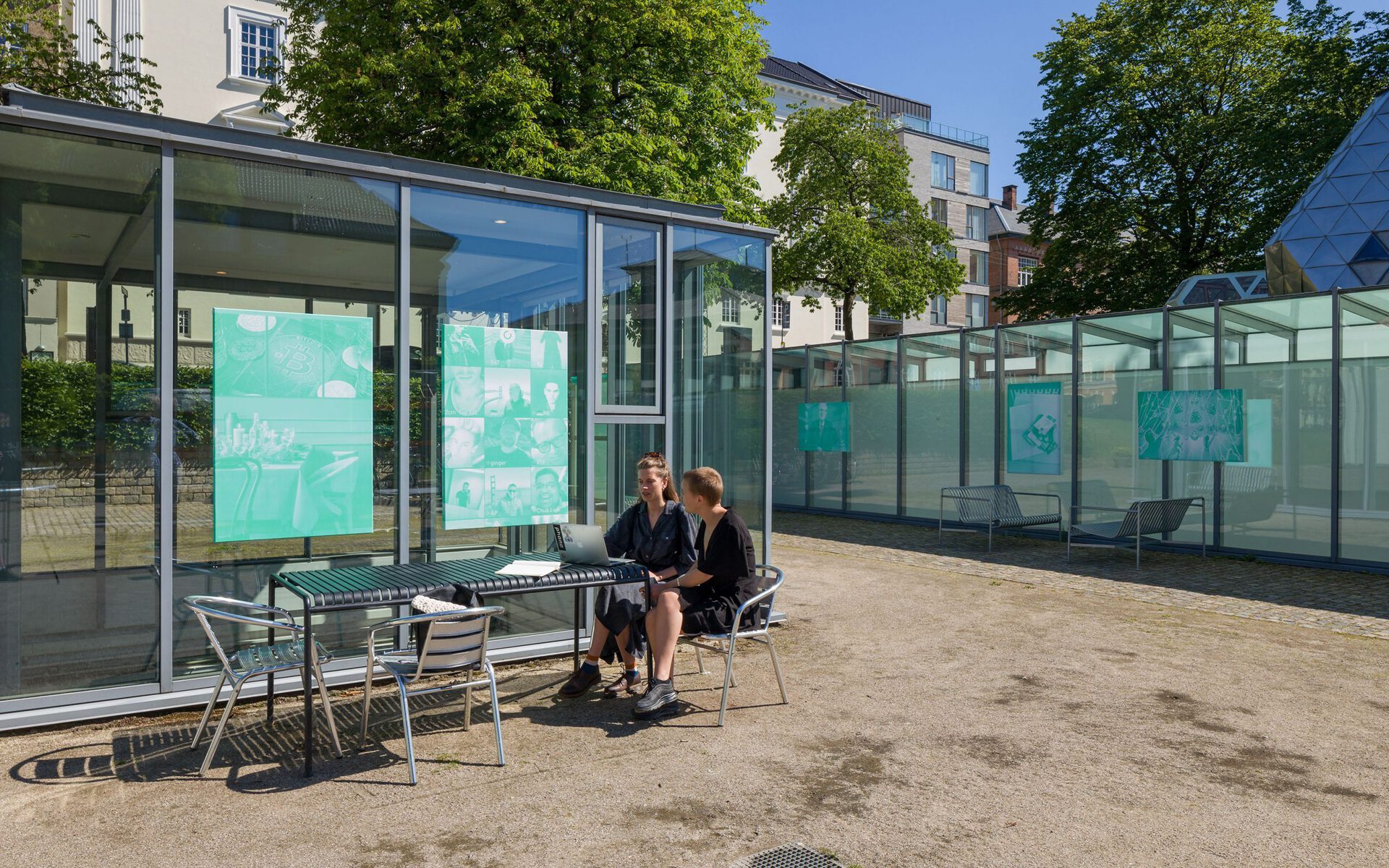
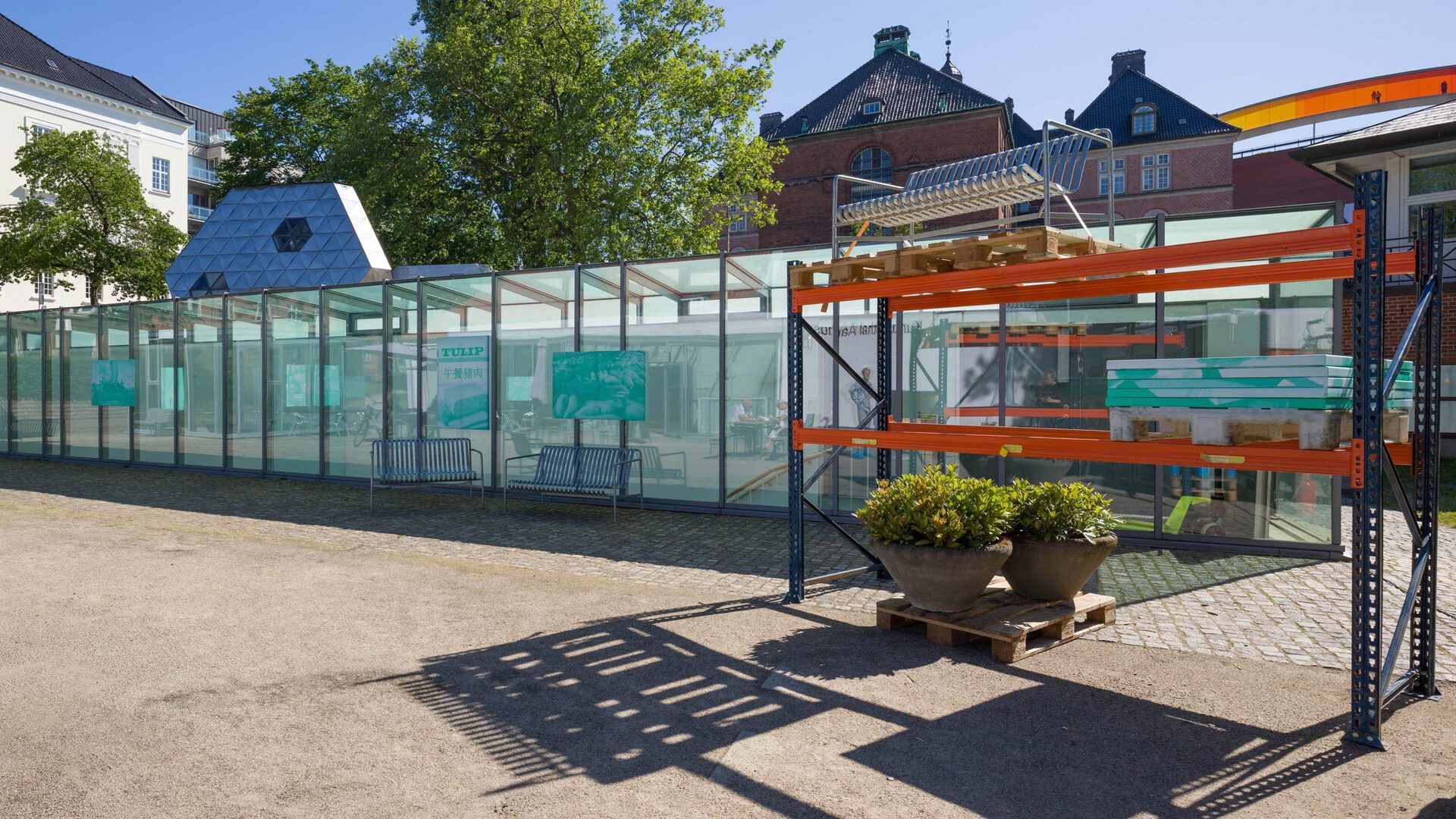
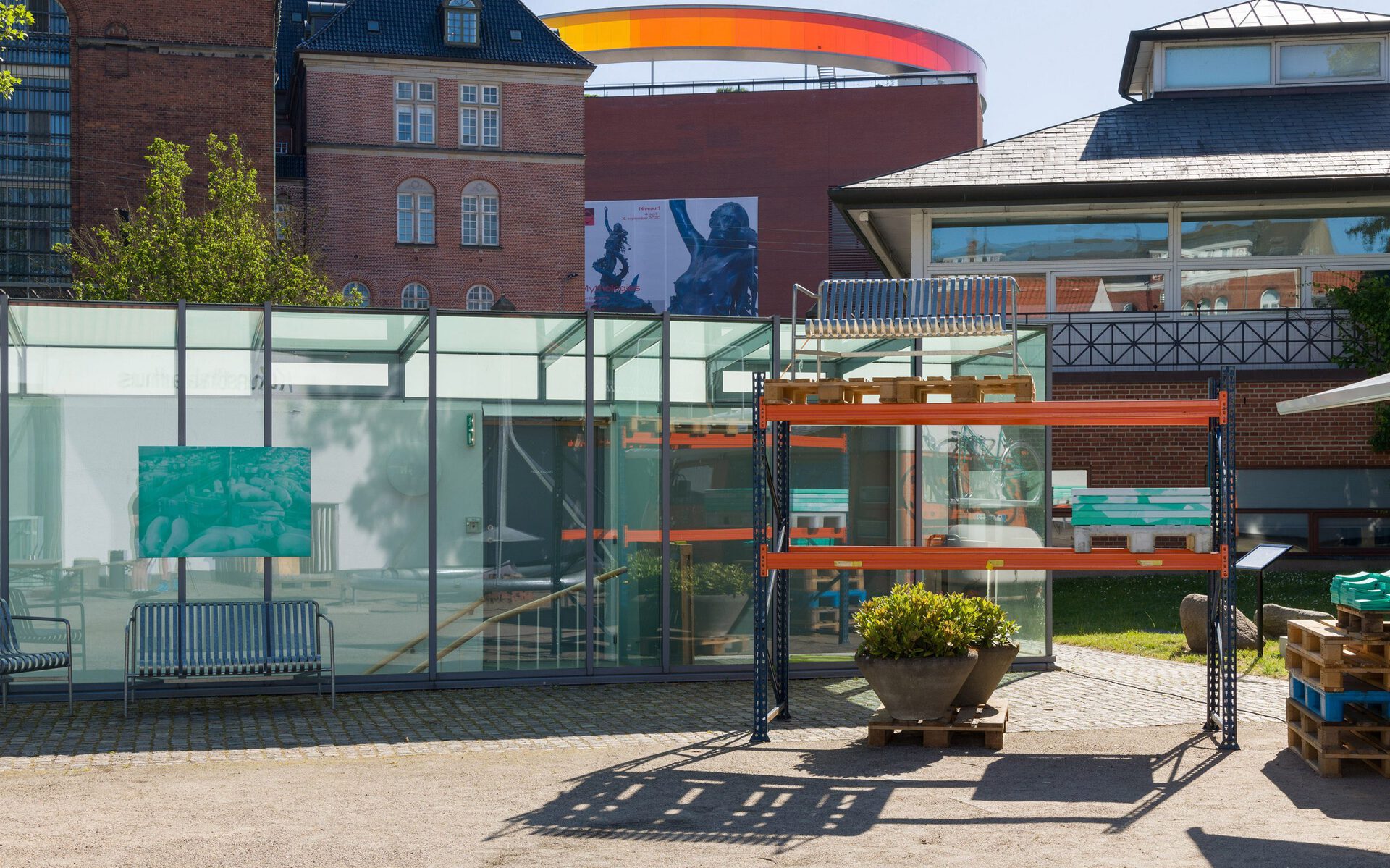
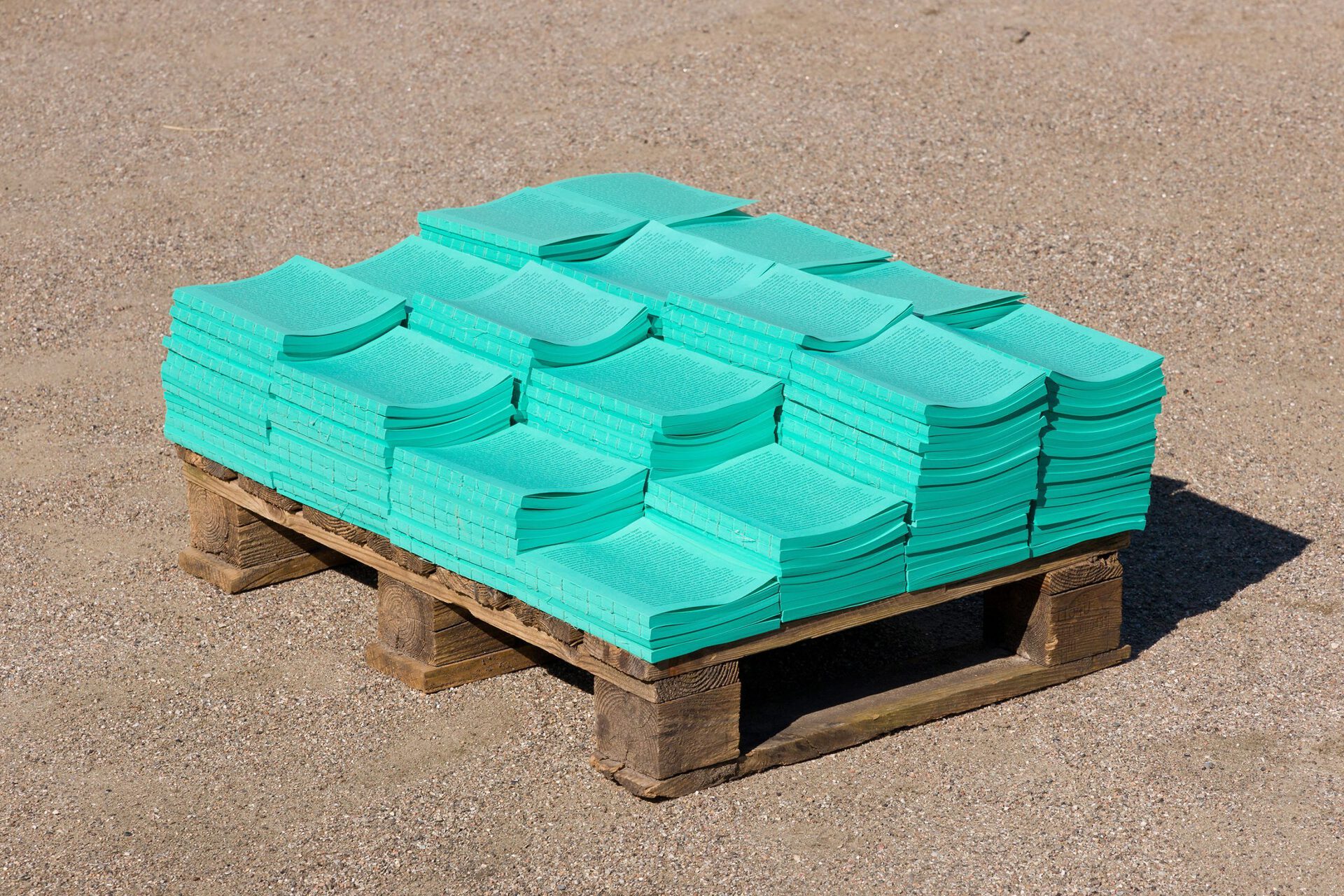
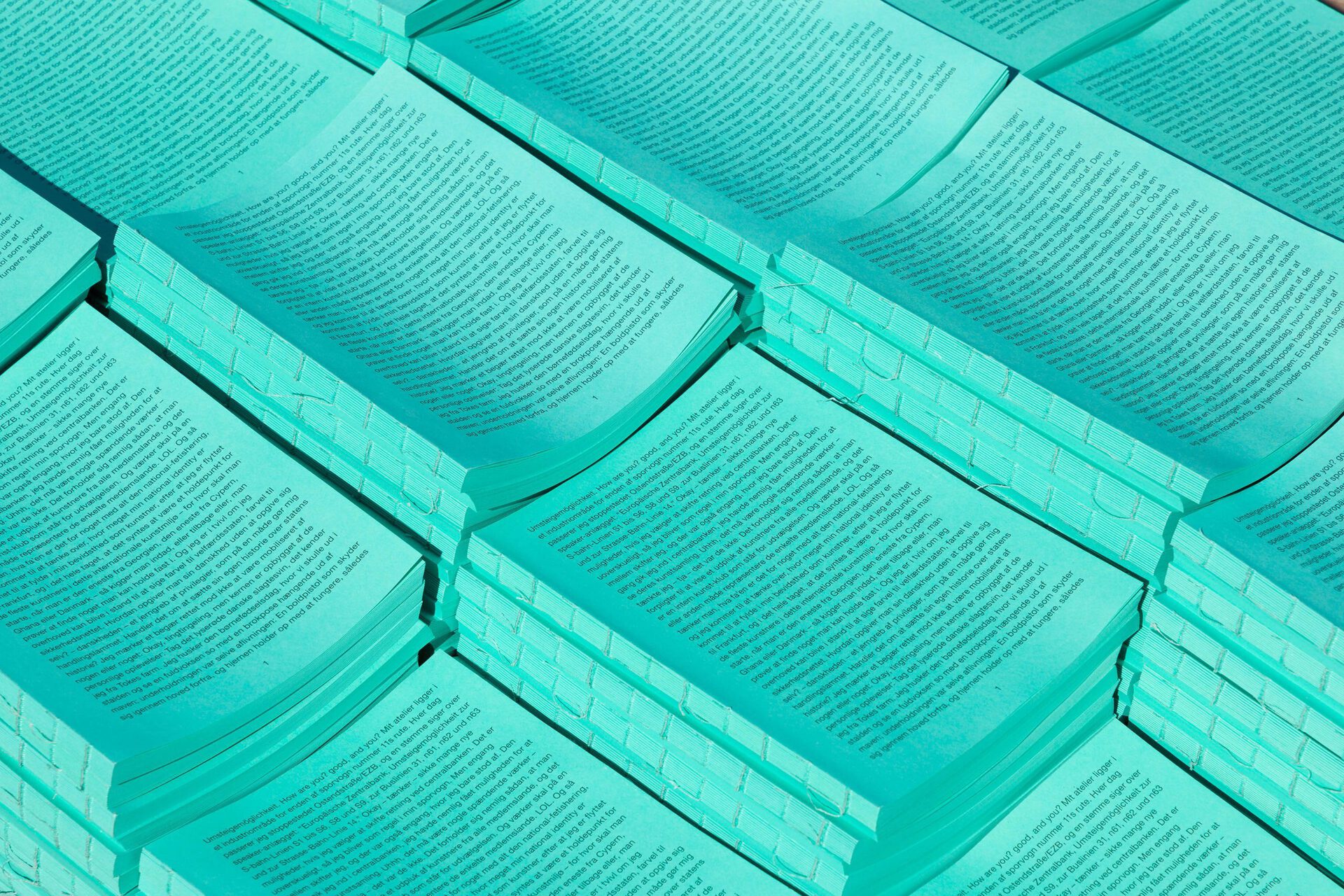
Location
Kunsthal AarhusDate
11.06 –16.06.2020Curator
Anna Weile KjærPhotography
Mikkel KaldalText
Exhibition text:
With Umsteigemöglichkeit, Villiam Miklos Andersen has created a work consisting of three main modules. The first element, and the one from which the others originate, is a book published for the exhibition. The book contains an essay written by Andersen over the course of the last year, offering a description of the artist’s life, work, movements and observations, all merging into a single stream of consciousness. The format of the books allows them to be stacked on a pallet, turning them into a sculptural element. The second element of the work consists of paintings. Their subject matter is taken from the book, and like the books, their formats are a perfect fit for the standard EUR pallet system. In another parallel to the books, the paintings will be stacked, too, but they will also be hung on the glass façade of Kunsthal Aarhus by means of a suction cup mounting system developed for the exhibition by Andersen. The installation interacts with the venue’s outdoor aluminium furniture, establishing a relationship between interior and exterior realms. The third and final element is performative in nature and concerns the artist’s own presence. During the exhibition period, Andersen will live in a converted motorhome in the Kunsthal Aarhus courtyard. Here he will enter into dialogue with visitors and rearrange his exhibition as the week progresses.
All elements of Andersen’s practice are characterized by an interest in the logistical systems of post-industrial society. How personal and private spheres are interwoven with and shaped by systems created by economic logic. Specifically, the book’s narrative and the artist’s own life – which in recent years has involved shuttling between the cities of Europe – have been shaped by the experiences and opportunities of movement allowed by capitalism. Logistical, streamlining systems also shape Andersen’s works when they adopt formats that are ready to be packed and palleted. He depicts lived life in the midst of a vast network of systems and ever-optimizing practicalities.
Exhibition text: Anna Weile Kjær / Book: Villiam Miklos Andersen